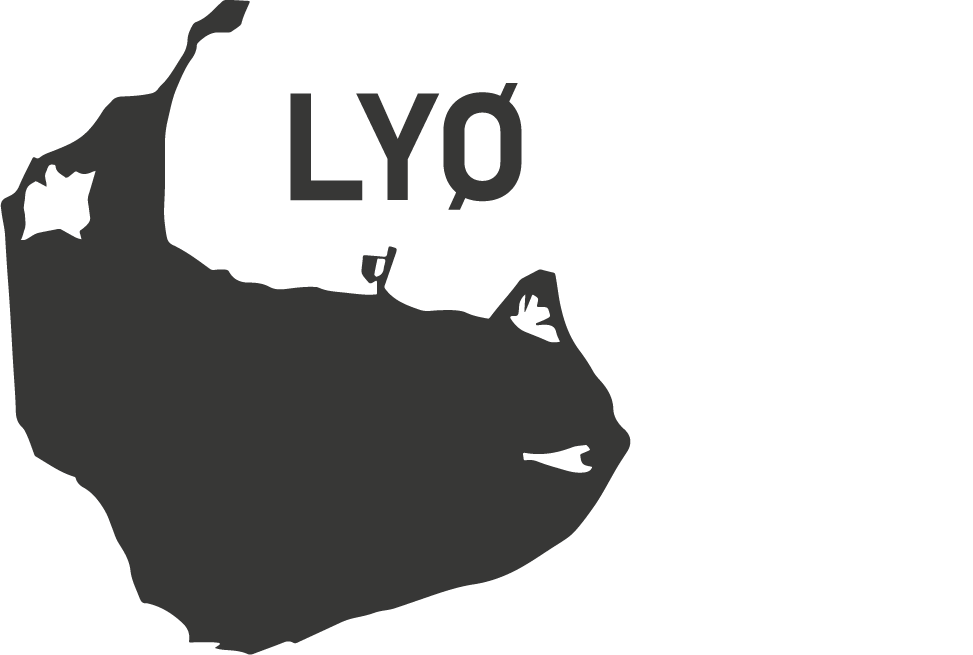Homer-historien
DANSK TEKST
Kom Odysseys i virkeligheden fra Lyø?
… Det mener den italienske forsker ved navn Felice Vinci i hvert fald.
Vores lille eventyrlige ø er blevet centrum i en stor fascinerende teori, der har fanget opmærksomheden i de historiske kredse.
Den italienske forfatter, Felice Vinci, har gennem mange år studeret Homers berømte værker Odysseen og Iliaden. Mens det altid er blevet antaget, at disse episke værker var fiktion og fandt sted i Grækenland, har Vinci en anderledes tese: Han mener, at handlingen faktisk udspillede sig i Norden, og at Lyø var den mytiske ø Ithaka, hjemstedet for helten Odysseus.
Vincis argumenter er mange. Blandt andet peger han på, at geografien i Homers værker ikke harmonerer med Grækenland, men passer perfekt med nordiske omgivelser.
I Odysseen beskrives folket med lyst hår, iført varmt tøj og som spiser grise og kvæg. Disse karakteristika ligner ikke det typiske græske billede, men matcher derimod en mere nordisk livsstil.
Endvidere har Vinci lagt mærke til navnene i Odysseen, hvor vores ønavn "Lyø" kan spores tilbage til det gamle nordiske ord "ið", der betyder isoleret eller afsidesliggende, hvilket også kan relateres til navnet "Ithaca" i "Odysseen".
Arkæologiske fund og undersøgelser i det sydlige område omkring Østersøen har afsløret spor af tidlige bosættelser og civilisationer, der har eksisteret i regionen. Disse fund kan bidrage til at bekræfte eller yderligere støtte teorien om en mulig forbindelse mellem øerne i Østersøen og den mytiske ø Itaka fra "Odysseen".
Om disse teorier stadig er ren fiktion eller ej, er svært at afgøre. Men Felice Vinci er i hvert fald overbevist: Lyø er Nordens Ithaka.
The Homer Story
ENGLISH VERSION
Did Odysseus actually come from Lyø? Well, that's what Italian researcher Felice Vinci believes, and it's a theory that has captivated historical circles.
Italian author Felice Vinci has spent many years studying Homer's famous works, the Odyssey and the Iliad. While it has always been assumed that these epic tales were fiction and took place in Greece, Vinci has a different thesis: he believes the events actually unfolded in the North, and that Lyø was the mythical island of Ithaca, the home of the hero Odysseus.
Vinci's arguments are many. For one, he points out that the geography described in Homer's works doesn't align with Greece but matches perfectly with Nordic surroundings.
In the Odyssey, the people are described with fair hair, wearing warm clothing, and eating pork and cattle. These characteristics don't resemble the typical Greek image but rather match a more Nordic lifestyle.
Furthermore, Vinci has noted the names in the Odyssey, where our island name "Lyø" can be traced back to the ancient Nordic word "ið," meaning isolated or remote, which can also be related to the name "Ithaca" in the "Odyssey."
Archaeological findings and investigations in the southern Baltic Sea region have revealed traces of early settlements and civilizations that existed in the area. These findings could help confirm or further support the theory of a possible connection between the Baltic Sea islands and the mythical island of Ithaca from the "Odyssey."
Whether these theories are pure fiction or not is difficult to determine. But Felice Vinci is certainly convinced: Lyø is the Ithaca of the North.



